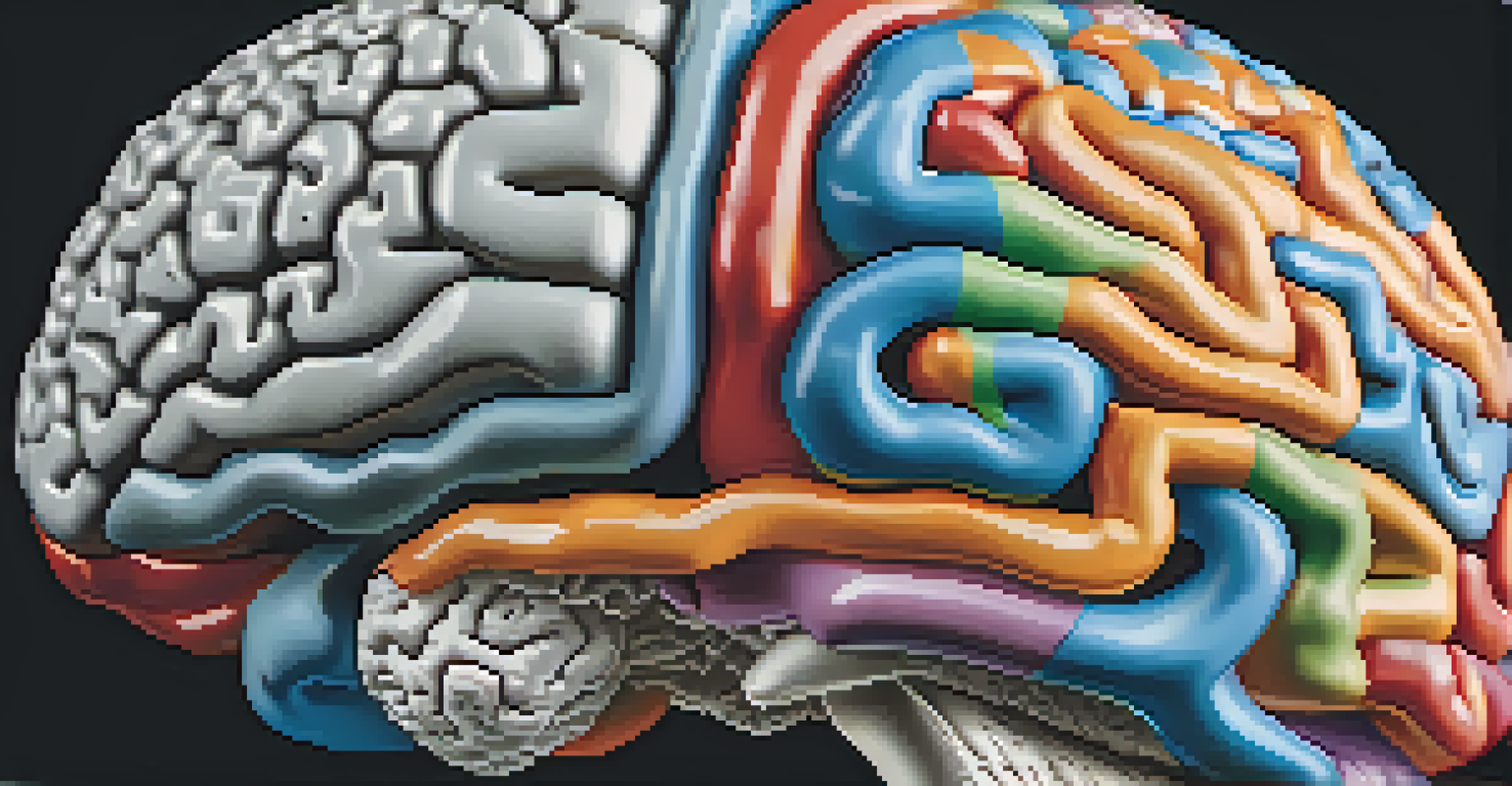The Role of Genetics in Addiction's Long-Term Effects

What Is Addiction and Why Does It Matter?
Addiction is a complex condition that affects millions of people worldwide. It goes beyond just a habit; it's a chronic disease that alters brain function and behavior. Understanding addiction is crucial because it not only impacts the individual but also their loved ones and society as a whole.
Addiction is a family disease. One person may use, but the whole family suffers.
When someone struggles with addiction, they often face various challenges, from health issues to social isolation. These challenges can lead to a cycle that’s hard to break without proper support and treatment. By grasping the nuances of addiction, we can better address its long-term effects on individuals and communities.
Moreover, addiction can manifest in different forms, including substance abuse, gambling, and even technology overuse. Each type of addiction presents its own set of challenges, but the underlying factors—including genetics—can play a significant role in how these addictions develop.
The Genetic Basis of Addiction: An Overview
Genetics significantly influences the likelihood of developing an addiction. Research shows that individuals with a family history of addiction may have a higher risk of experiencing similar issues. This genetic predisposition doesn't guarantee addiction, but it certainly increases vulnerability.

For instance, certain genes are associated with how the brain processes dopamine, a neurotransmitter linked to pleasure and reward. If someone has a genetic variation that affects dopamine receptors, they may find themselves seeking out addictive substances or behaviors more intensely than others.
Addiction is a Complex Disease
Addiction is a chronic condition that alters brain function and behavior, affecting not just individuals but their loved ones and society.
Understanding these genetic factors is essential for developing targeted prevention and treatment strategies. By identifying those at higher risk due to their genetic makeup, healthcare providers can offer early interventions that might mitigate long-term effects.
How Environment Interacts with Genetics
While genetics plays a crucial role in addiction, it doesn't act alone. Environmental factors, such as stress, trauma, and social influences, interact with genetic predispositions to influence addiction risk. This interplay highlights the complexity of addiction as both a biological and environmental issue.
Genetics load the gun, but environment pulls the trigger.
For example, someone with a genetic vulnerability to addiction may only develop an issue if they encounter specific environmental triggers, like peer pressure or a traumatic event. This means that even if someone is genetically predisposed, their environment can either exacerbate or mitigate that risk.
Recognizing the significance of this interaction can help create a more comprehensive approach to addiction treatment. By addressing both genetic and environmental factors, we can better support individuals on their path to recovery.
The Long-Term Effects of Addiction on the Brain
Addiction can lead to long-lasting changes in brain structure and function. These changes can impair decision-making, impulse control, and emotional regulation, making it difficult for individuals to break free from addictive behaviors. In many cases, these alterations persist even after someone stops using substances.
For example, studies have shown that chronic drug use can cause a decrease in gray matter volume in critical areas of the brain. This reduction can affect a person's ability to experience pleasure, leading to a cycle of seeking substances to regain those feelings.
Genetics Influence Addiction Risk
Genetic predispositions can increase vulnerability to addiction, but environmental factors also play a crucial role in its development.
Understanding these long-term effects is vital for developing effective treatment plans. For instance, therapies that focus on rebuilding cognitive functions may be necessary to help individuals regain control over their lives after addiction.
Genetic Testing and Personalized Treatment Approaches
Advancements in genetic testing have opened new doors for addiction treatment. By identifying specific genetic markers, healthcare professionals can tailor treatment plans that cater to an individual's unique genetic profile. This personalized approach can enhance the effectiveness of interventions.
For instance, if someone has a genetic predisposition to opioid addiction, they might benefit from specific medications or therapies that target their unique needs. This not only increases the chances of successful recovery but also minimizes the risk of relapse.
Personalized treatment plans represent a significant shift in how we approach addiction. By leveraging genetic insights, we can provide more effective and empathetic care to those struggling with addiction.
The Role of Family History in Recovery
Family history plays a significant role in addiction recovery. Individuals with relatives who have struggled with addiction may face additional challenges during their recovery journey. This background can create a complicated relationship with substances and recovery processes.
However, understanding one's family history can also be empowering. It allows individuals to recognize patterns and take proactive steps to address their vulnerabilities. Support groups and family therapy can be beneficial in these situations, fostering open communication and shared experiences.
Personalized Treatment is Key
Advancements in genetic testing allow for tailored treatment plans that address individual needs, enhancing recovery chances.
Moreover, acknowledging these dynamics can pave the way for healthier relationships and coping strategies. By addressing the impact of family history, individuals can better navigate their recovery paths.
Future Directions in Addiction Research
The field of addiction research is rapidly evolving, particularly concerning genetics. As scientists uncover more about the genetic components of addiction, we can anticipate more effective interventions and preventive strategies. This ongoing research holds the promise of transforming how we understand and treat addiction.
For instance, researchers are exploring gene therapy as a potential avenue for treating addiction. By directly addressing the genetic factors that contribute to addiction, we could significantly alter the landscape of recovery.

Ultimately, the future of addiction research looks bright. With a focus on genetics, we can develop more comprehensive approaches that consider both biological and environmental factors, leading to more effective treatment options for those in need.